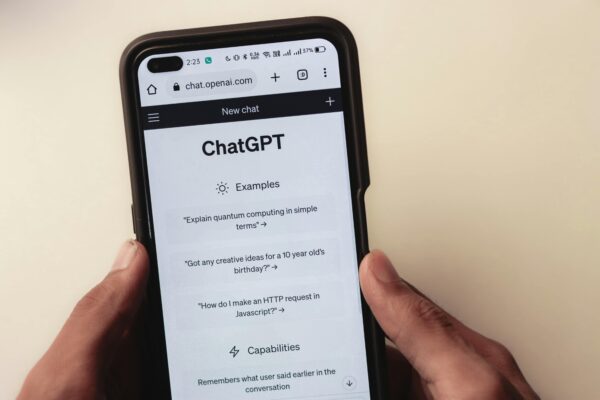The challenge of keeping students engaged has never been more crucial. With the rapidly rise of Artificial Intelligence – AI – and technology shaping how we learn, educators are exploring innovative ways to captivate and inspire young minds.
The Importance of Engagement
Engagement is the heartbeat of effective learning (I think we can all agree on that?!). When students are engaged, they are more likely to participate actively, retain information, and develop a deeper understanding of the subject matter – which is ultimately what we want. In the age of AI, where distractions are plentiful and attention spans can be fleeting, nurturing engagement becomes both an art and a science.

Embracing Technology in Education
Every day, new articles online discuss both the risks and benefits of AI. While it’s important to note that not all new technologies are entirely positive, it’s clear that technology, including AI-driven tools, has completely changed how we teach and learn.
AI can personalise learning experiences, offering tailored content and feedback based on individual student needs and progress. This adaptive approach not only enhances learning outcomes but also empowers educators to meet the diverse needs of their students more effectively.
As we navigate the complexities of the AI age, preparing students for the future goes beyond academic knowledge. It involves nurturing critical thinking, adaptability, and resilience—skills that will serve them well in a rapidly changing world.
So, what can you do to keep your students engaged, despite all the automated tools and no-need-to-think-much options? Here are four ideas for your classroom:
Strategies to Enhance Engagement
- Interactive Learning Experiences: Incorporate multimedia elements, interactive activities, and hands-on projects to make learning more dynamic and relevant. Imagine a science class where students are learning about the solar system. Instead of just reading about the planets from a textbook, the teacher uses an interactive learning experience. Students explore a virtual solar system on a touchscreen display, where they can zoom in on planets, rotate them, and even see simulations of how their orbits work. They collaborate in small groups to create presentations using multimedia elements like videos and interactive diagrams. This hands-on project not only makes learning about astronomy more engaging but also helps students develop research skills, teamwork, and a deeper understanding of the subject.
- Gamification: Introduce game-like elements such as challenges, rewards, and leaderboards to create a sense of accomplishment and motivation among students. In a language arts class, students participate in a reading challenge where they earn points and badges for completing books. A virtual leaderboard tracks their progress, sparking friendly competition and motivating students to read more. Rewards like extra recess or library privileges further fuel their enthusiasm, transforming reading into an engaging and rewarding experience that fosters a love for literature and teamwork.
- Project-Based Learning: Encourage collaborative projects and real-world applications of knowledge to foster curiosity and problem-solving skills. With this one, you could have your students collaborate on a project to create a sustainable school garden. They research local plant species, design water conservation methods, and collaborate with community experts. This hands-on experience not only teaches ecological principles but also enhances problem-solving and teamwork skills as students tackle real-world challenges.
- Student-Centred Approaches: Empower students to take ownership of their learning journey by allowing them to set goals, explore their interests, and make choices in their education. What about this: In a history class, students choose a historical topic of interest for a research project. They set their own goals, conduct research using diverse sources, and decide how to present their findings. At the end of the semester, students present their research findings through various formats, such as presentations, written reports, or multimedia projects. They not only showcase their knowledge but also demonstrate their ability to navigate complex historical narratives independently.

Did you know you can explore LiteracyPlanet for free? Start your 30-day trial today!
Leveraging AI for Personalised Learning
Educators play a pivotal role in creating an engaging learning environment. By embracing technology thoughtfully and integrating it into their teaching practices, educators can spark curiosity, inspire creativity, and cultivate a love for learning that extends beyond the classroom. AI-powered tools can analyse vast amounts of data to provide insights into student performance and learning patterns. This data-driven approach enables educators to identify areas where students may need additional support or challenge, thereby optimising the learning experience for each individual.
In conclusion, keeping students engaged in the age of AI will not always be easy in the future. It requires a blend of creativity, technology integration, and a deep understanding of your student needs. But: by embracing innovative strategies and leveraging AI-powered tools, educators can create dynamic learning experiences that ignite curiosity, foster collaboration, and prepare students to thrive in life and the digital era.
Let’s continue to explore, innovate, and inspire as we shape the future of education together. Please feel free to reach out to us here if you have any questions about our platform, or if there’s anything else we can help you with.



